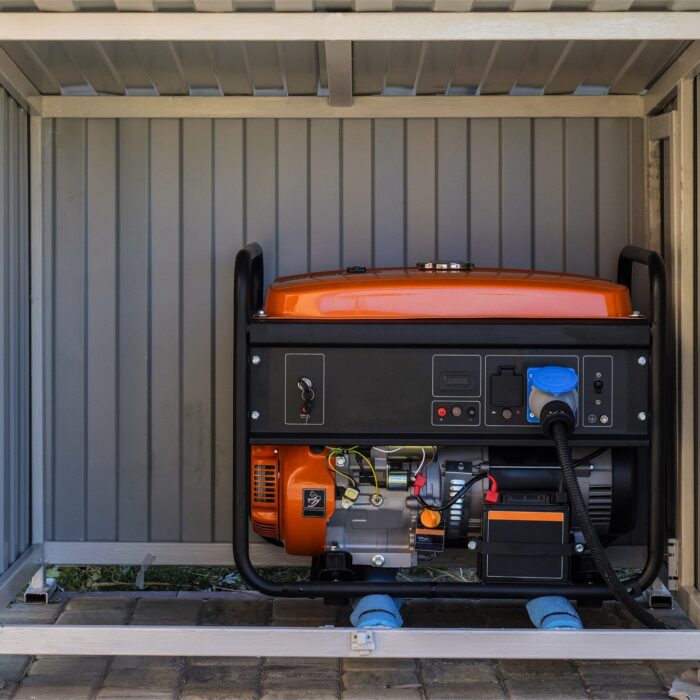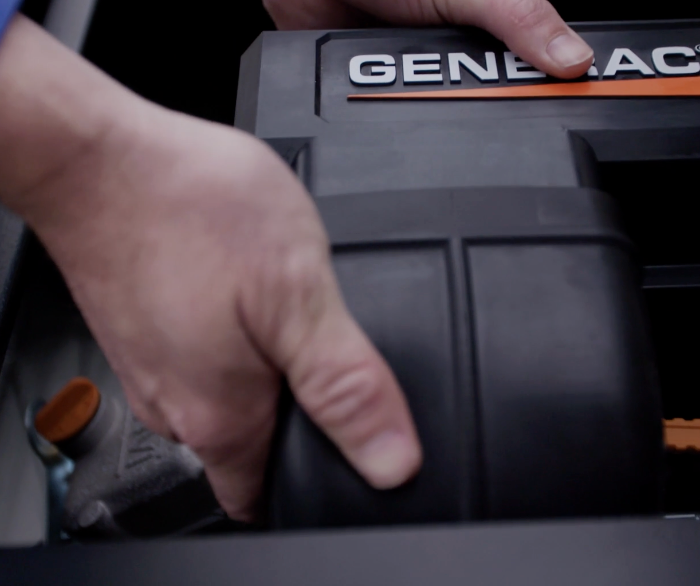Power outages can happen at any time and for many different reasons. For example, a Tropical Storm Hilary-related power outage in Los Angeles caused a crisis at a hospital, a place that most people would consider to be relatively safe from such occurrences.
Having a backup power source is crucial since things can be unpredictable. Portable generators are often the go-to solution for electricity when the grid fails. The question that many homeowners face is whether a portable generator can effectively power their entire house.
Are you wondering if it’s worth the investment? Keep reading to learn about home power needs, types of generators, and more. That way, you can keep the lights on during the worst times.
Taking Stock of Your Home Power Needs
Before determining whether a portable generator can power a whole house, it’s essential to grasp the concept of home power needs. The energy requirements of a typical house vary based on various factors. Some of these include appliance count, heating and cooling system types, and other electrical devices involved.
The first step in assessing your home’s power needs is to create a list of essential appliances and systems that you would like to run during a power outage.
Refrigerators and freezers are essential for preserving food and preventing spoilage during an outage. Depending on the season, heating and air conditioning can be vital for comfort and safety. Providing adequate lighting for your home is crucial, especially during the night.
Do you have a basement? If so, a sump pump is critical to prevent flooding.
Charging phones and other communication devices is necessary to stay informed and connected. Stoves and microwaves are essential for meal preparation. If your home relies on well water, a water pump is necessary for water supply.
Once you have a comprehensive list of your essential appliances, you can calculate their total wattage. This will give you an idea of your minimum power requirements during a power outage.
Types of Generators
When determining whether or not a portable generator can fulfill your home’s power needs, it’s important to understand the different types of generators available. There are three main categories to consider.
Portable Generators
Portable generators are often smaller and more mobile, making them very versatile. They can be used for camping, construction sites, and as backup power for homes. They can be moved around and are suitable for powering a few appliances or devices.
Inverter Generators
Inverter generators are a subset of portable generators that provide clean and stable power. They’re known for their fuel efficiency and quiet operation, and are suitable for powering sensitive electronics and appliances.
Standby Generators
These are permanent fixtures that are installed outside the home and connected to the electrical system. Standby generators are designed to provide power to the entire house and can automatically kick in during an outage. They often take either natural gas or propane.
Wattage Rating and Power Requirements
The wattage rating of a generator is a critical factor in determining whether it can power your whole house. Each appliance and device has a specific wattage requirement. You can find this information on their labels or in the user manual. To ensure your generator meets your needs, you’ll need to add up the appliance wattage of all necessary devices.
It’s essential to note that some appliances have higher starting wattages, known as “surge wattage,” which is required to turn on the appliance. This surge wattage is temporary but crucial to consider when sizing your generator.
For example, a refrigerator might require 800 watts to run but could need 1,600 watts to turn on. Therefore, your generator should be capable of handling both the running and starting wattage of all the appliances you want to power.
Six Factors to Determine Generator Size
Once you have calculated the total wattage needed to power your essential appliances, the next step is to determine if a portable generator is up to the task.
Portable generators come in various sizes, typically measured in watts, ranging from small 1,000-watt models to larger 10,000-watt or more models.
To ensure you end up with the right size generator for your home, consider the following factors:
1. Verify the Generator’s Wattage: Ensure the generator’s rated wattage exceeds the total wattage of your essential appliances, taking into account their starting wattages.
2. Fuel Type: Portable generators can be fueled by gasoline, propane, or even diesel. Choose the one that is most readily available and convenient for your needs.
3. Run Time: Take note of the generator’s run time after filling the tank. A longer run time is beneficial during extended power outages.
4. Portability and Storage: Assess how easily you can move the generator and store it when not in use.
5. Noise Considerations: If noise is a concern, an inverter generator boasts quiet operation compared to other options.
6. Safety Features: Overload protection and low-oil shutoff are worthwhile safety features to invest in.
By carefully considering these factors, you can select a generator that not only meets your power needs but also aligns with your preferences and safety concerns.
Best Practices for Using a Portable Generator Safely
While it’s possible to power essential appliances with a portable generator, it’s equally important to do so safely. Start by choosing an appropriate location for your generator.
Don’t forget to ground it properly and use the correct extension cords. Always avoid overloading and conduct regular maintenance.
Remember to follow safety guidelines for fuel handling and storage. Shut down the generator safely each time, be aware of fire hazards, and always store the generator in an open area to prevent CO2 leak risks.
Anyone who handles your generator should follow these safety guidelines. By conducting regular maintenance, you can enjoy the benefits of a portable generator and keep your home and family safe during power outages.
Now You Can Use Your Portable Generator Wisely
With a portable generator, you can stay prepared in case of a sudden emergency. Still, a portable generator has its limits. By familiarizing yourself with what’s possible, you can keep your family safe and comfortable.
Generator Supercenter has your needs covered. You can count on us for an impressive range of generator solutions. Our team can handle installation, maintenance, and more.
Are you ready for the peace of mind that comes with a generator? Reach out to the Generator Supercenter with questions. We can also provide you with a reliable generator quote.





